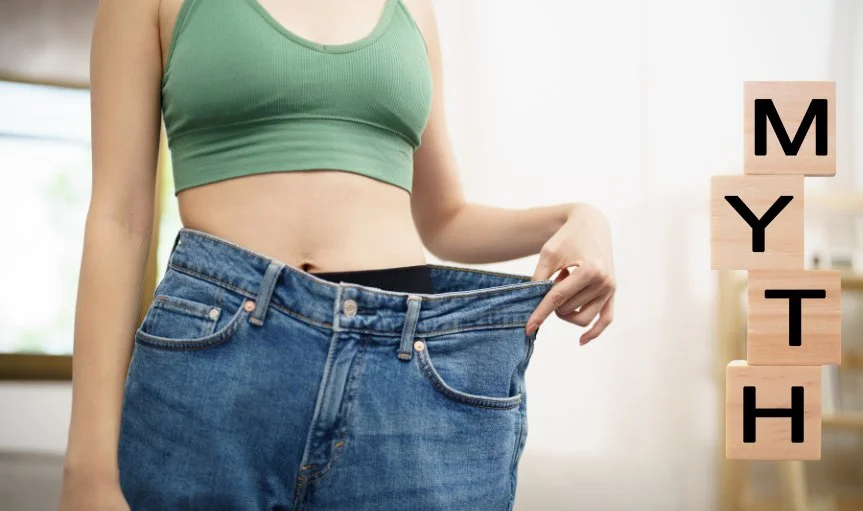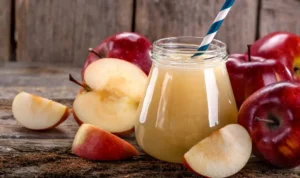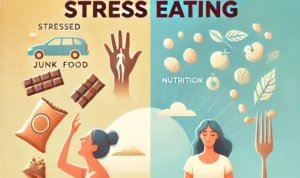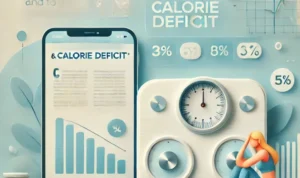Table of Contents
ToggleMisinformation about weight loss can ruin your progress. Bad advice can make you feel frustrated and disappointed when you don’t see results. Many weight loss myths complicate your journey, making it harder to reach your goals. That’s why it’s crucial to know the truth about what works and what doesn’t.
In this article, we’ll tackle the top 10 weight loss myths, reveal the facts, and give you practical tips for sustainable weight loss.
Myth 1: “Carbs Are the Enemy”
Debunking the Myth:
Carbs aren’t bad for you. In fact, they are your body’s main source of energy. Cutting out all carbs can leave you feeling tired and cranky.
The Science:
Complex carbs, like whole grains, provide lasting energy and are packed with fiber. Fiber helps keep you full longer, which can support weight loss. Unlike simple carbs, complex carbs don’t cause blood sugar spikes that lead to hunger.
Practical Advice:
Add healthy carbs like brown rice, quinoa, and sweet potatoes to your meals. Choose whole, unprocessed carbs for the best benefits.
Myth 2: “Eating Fat Makes You Fat”
Debunking the Myth:
Not all fats are equal. Healthy fats, like those in avocados, nuts, and olive oil, are good for you. Unhealthy fats, such as trans fats, can harm your health and contribute to weight gain.
The Science:
Healthy fats keep you full, support your metabolism, and provide essential nutrients. They don’t make you gain weight if you eat them in moderation.
Practical Advice:
Include healthy fats in your diet. Use olive oil for salads, enjoy a handful of nuts, or add some avocado to your meals.
You might love this: 6 Proven Benefits of Drinking Olive Oil Before Bed
Myth 3: “Skipping Meals Helps You Lose Weight”
Debunking the Myth:
Skipping meals can slow down your metabolism and lead to overeating later. It also messes with your blood sugar levels, making you feel tired and moody.
The Science:
When you skip meals, your body goes into “starvation mode,” slowing down your metabolism to conserve energy. This makes it harder to burn calories and lose weight.
Practical Advice:
Eat smaller, balanced meals throughout the day. This keeps your metabolism steady and your energy levels up.
Myth 4: “All Calories Are Equal”
Debunking the Myth:
Not all calories are the same. The quality of the calories you eat matters as much as the quantity.
The Science:
Nutrient-dense foods, like fruits, vegetables, and lean proteins, provide the vitamins and minerals your body needs. Empty-calorie foods, like sugary snacks, offer little to no nutrition.
Practical Advice:
Focus on whole, unprocessed foods. Avoid sugary and highly processed options to get the most nutrition from your calories.
Myth 5: “You Can Target Fat Loss in Specific Areas”
Debunking the Myth:
You can’t choose where your body loses fat first. Spot reduction doesn’t work.
The Science:
Your body burns fat from all over, not just from specific areas. Genetics play a big role in how and where you lose fat.
Practical Advice:
Combine full-body strength training with cardio. This helps you burn fat all over while toning muscles.
Myth 6: “All Weight Gain is Due to Poor Diet and Lack of Exercise”
Debunking the Myth:
Weight gain can come from many factors, not just diet and exercise. Hormones, stress, sleep, and certain medical conditions can all play a part.
The Science:
Hormonal imbalances, like thyroid issues, can affect your metabolism. Stress and lack of sleep can also make it harder to lose weight.
Practical Advice:
Pay attention to all aspects of your health. If you think something else might be affecting your weight, talk to a healthcare professional.
Myth 7: “Supplements and Detox Teas Are Effective for Weight Loss”
Debunking the Myth:
Most supplements and detox teas don’t help with weight loss. Some can even be harmful.
The Science:
These products aren’t regulated, so their safety and effectiveness aren’t guaranteed. Some may have harmful ingredients or cause side effects.
Practical Advice:
Focus on eating whole foods, staying active, and making long-term lifestyle changes. Quick fixes like supplements or detox teas are rarely effective.
Myth 8: “Eating Late at Night Causes Weight Gain”
Debunking the Myth:
Eating late at night doesn’t automatically cause weight gain. It’s more about how much you eat and what you eat.
The Science:
Your total daily calorie intake and activity levels matter more than the timing of your meals. Eating late is only a problem if it leads to overeating.
Practical Advice:
Practice mindful eating and maintain a calorie deficit. Focus on what you eat, not just when you eat.
Also Read: Maintaining Weight Loss: Proven Strategies to Keep the Pounds Off for Good
Myth 9: “You Must Follow a Strict Diet to Lose Weight”
Debunking the Myth:
Strict diets can lead to yo-yo dieting and are hard to stick to. They often don’t work in the long run.
The Science:
A balanced, flexible approach to eating is more sustainable and effective for long-term weight loss. Extreme diets can cause nutritional deficiencies and unhealthy eating habits.
Practical Advice:
Focus on moderation, portion control, and mindful eating. Enjoy a variety of foods and find a healthy balance that works for you.
Myth 10: “Exercise Alone is Enough for Weight Loss”
Debunking the Myth:
Exercise is important, but diet has a bigger impact on weight loss.
The Science:
You need to burn more calories than you consume to lose weight. Exercise helps, but it’s not enough without a healthy diet.
Practical Advice:
Combine regular exercise with a balanced diet. This approach will help you reach your weight loss goals and improve your overall health.
Tips for Overcoming Weight Loss Myths
- Educate Yourself: Look for credible sources, consult a nutritionist, or attend workshops to get reliable information.
- Set Realistic Goals: Aim for small, sustainable changes rather than quick fixes.
- Focus on Health, Not Just Weight: Remember that feeling good and being healthy is more important than just losing weight.
Frequently Asked Questions
Does eating carbs really cause weight gain?
No. Carbs, especially complex ones, can be part of a healthy diet and support weight loss.
Can I lose weight without exercising?
Yes, but exercise helps you lose weight faster and improves your health.
Are all processed foods bad for weight loss?
Not all, but whole foods are generally better for your health and weight loss.
How do I know if a diet is right for me?
Choose a balanced plan that you can stick to long-term. Avoid any diet that feels too restrictive or promises extreme results.
Conclusion
Don’t let weight loss myths hold you back. Knowing the facts can make your journey easier and more successful. Focus on evidence-based advice, keep a balanced perspective, and make informed choices that work for you. Remember, the key to sustainable weight loss is a healthy lifestyle, not quick fixes or fads.
We think you’ll like these too






